Ultrasonic Thickness Gauge Measures The Thickness of Metal Billet and Surface Glass-Lined Layer
Glass Lining Thickness Measurement
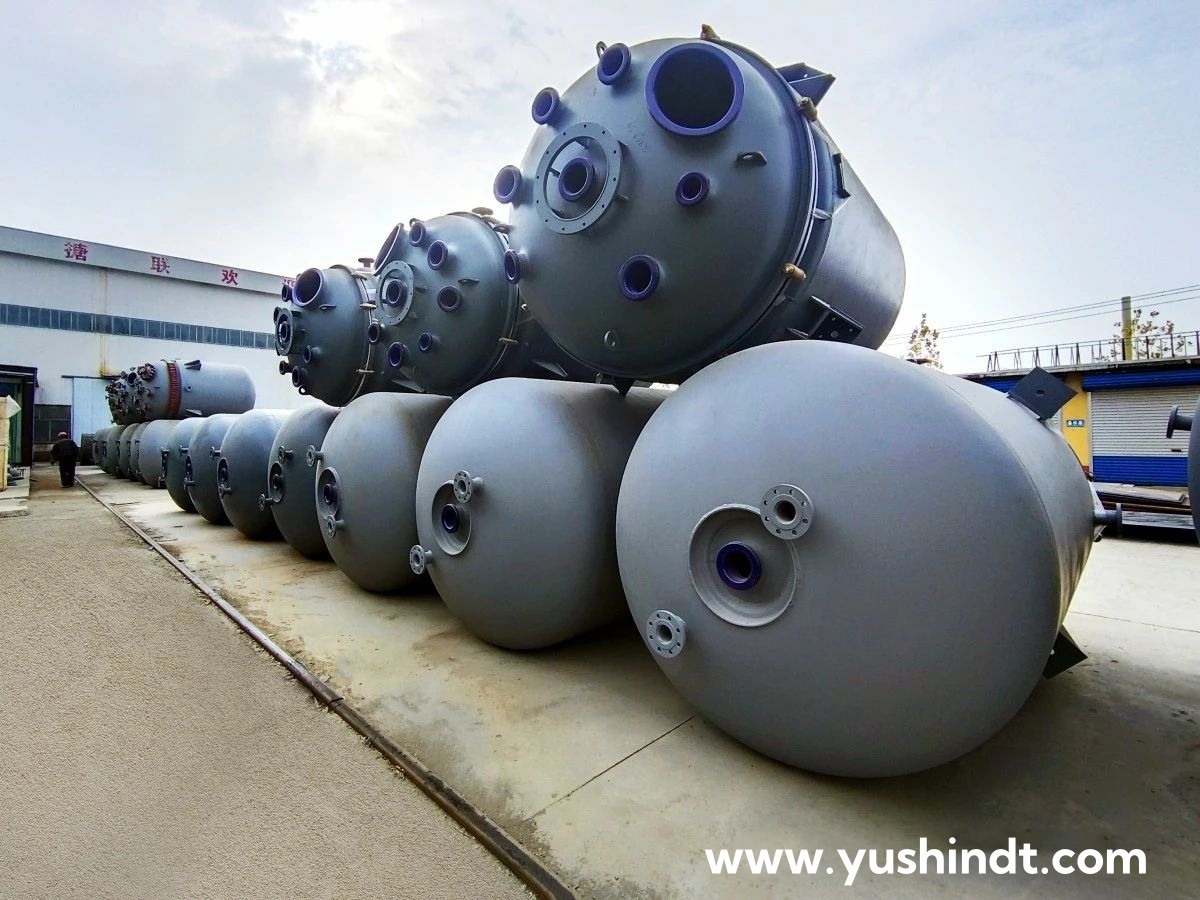
What is Glass Lining
Glass lining (Enamel) is a product obtained by applying enamel glaze on the surface of a metal body, which is usually referred to as enamel, also known as glass lining. Glass lining has high corrosion resistance and wear resistance, good surface finish and easy to wash. Some use microcrystalline enamel to improve its mechanical and thermal properties. The main varieties include enameled pipes, pumps, valves, reaction tanks, reaction kettles, agitators, fractionator, filters, storage tanks, etc.
Characteristics and Applications of Glass Lined Equipment
Glass lined reactor is a composite material product which is lined with glass on the inner surface of a steel container and is firmly attached to the metal surface after high temperature burning. Therefore, it has both the stability of glass and the strength of metal, is an excellent corrosion-resistant equipment.
The glass lined layer of glass lined equipment such as glass lined reactor and glass-lined reaction tank can withstand the corrosion of most inorganic acids, organic acids, organic solvents and other media. It is widely used in chemical, petroleum, medicine, pesticides, food, dyes and other industrial processes.
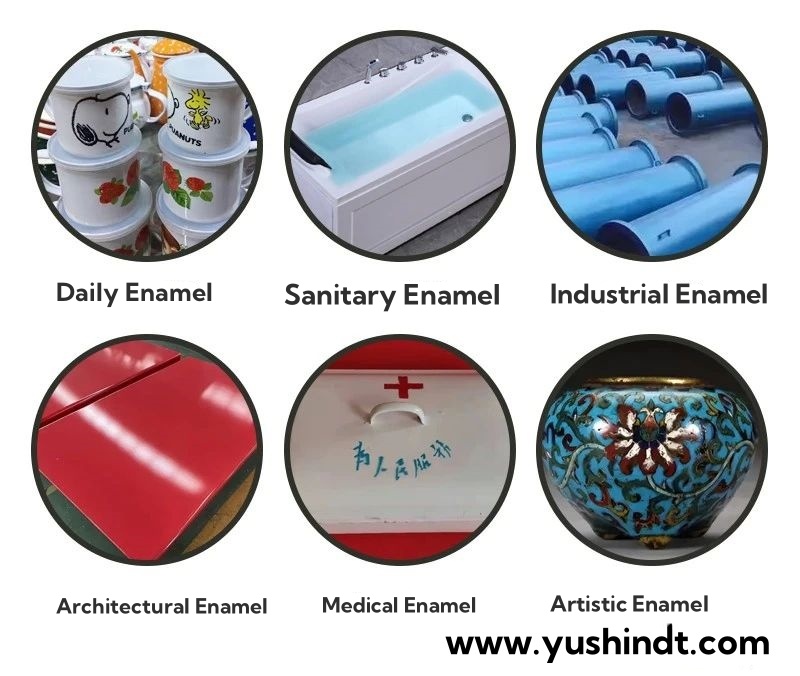
Is the thicker the porcelain layer of the glass-lined equipment the better?
The quality of glass lined equipment depends largely on the internal quality. Many people think that the thicker the glass lined equipment the better, but the fact is not. The glass lining standard states that the thickness of the porcelain layer of the glass lined equipment is 0.8mm~2mm, which refers to the thickness of the porcelain layer after the equipment is burning. For glass lined products, the thinner the porcelain layer the better, the thinner the porcelain layer, the less brittle and the more ductile, not only will the thermal resistance be reduced during heat transfer, but the temperature difference impact resistance will also be improved. The thinning of the porcelain layer should not be less than 0.8mm.
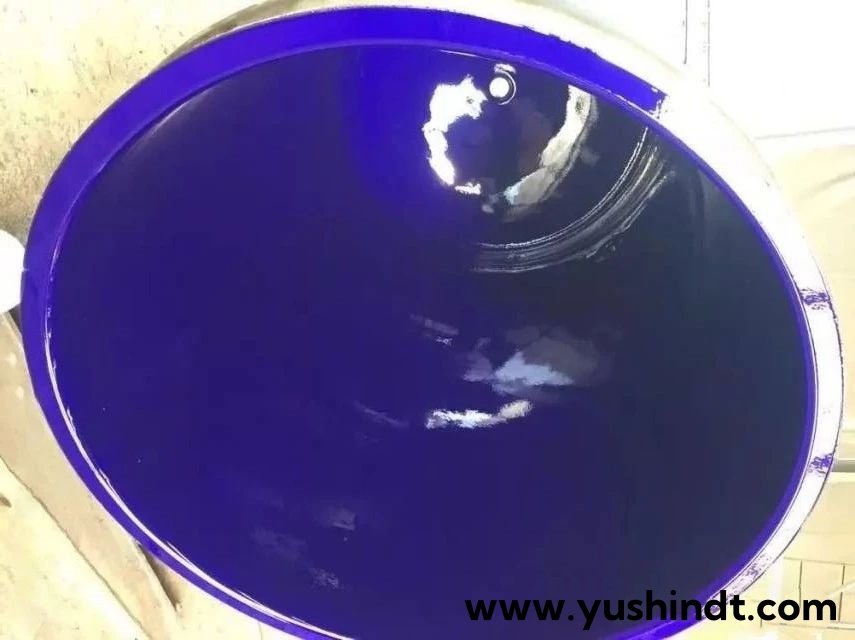
Measurement Analysis
Most of the glass lined reactors are used in harsh corrosive environment, so their quality inspection should be very strict. The relevant national departments have formulated corresponding standards for detailed inspection and testing requirements. The main performance and test methods of the glass lined reactor are measured according to GB/T7991.
The user who contacted us this time is a special inspection institute to test whether the steel container wall thickness and glass lining thickness of the glass lined reactor meet the relevant requirements. The user has found the following problems when using magnetic induction coating thickness gauge:
★In order to avoid being affected by the magnetic changes of the metal substrate, the magnetic thickness gauge needs to be calibrated using a metal substrate before glass lining that has been heat treated to simulate the firing process.
★Test data that is too close to the edge or corner of the tested part has a large error.
★Only the thickness of the glass lined layer on the surface of the magnetic steel container can be measured.
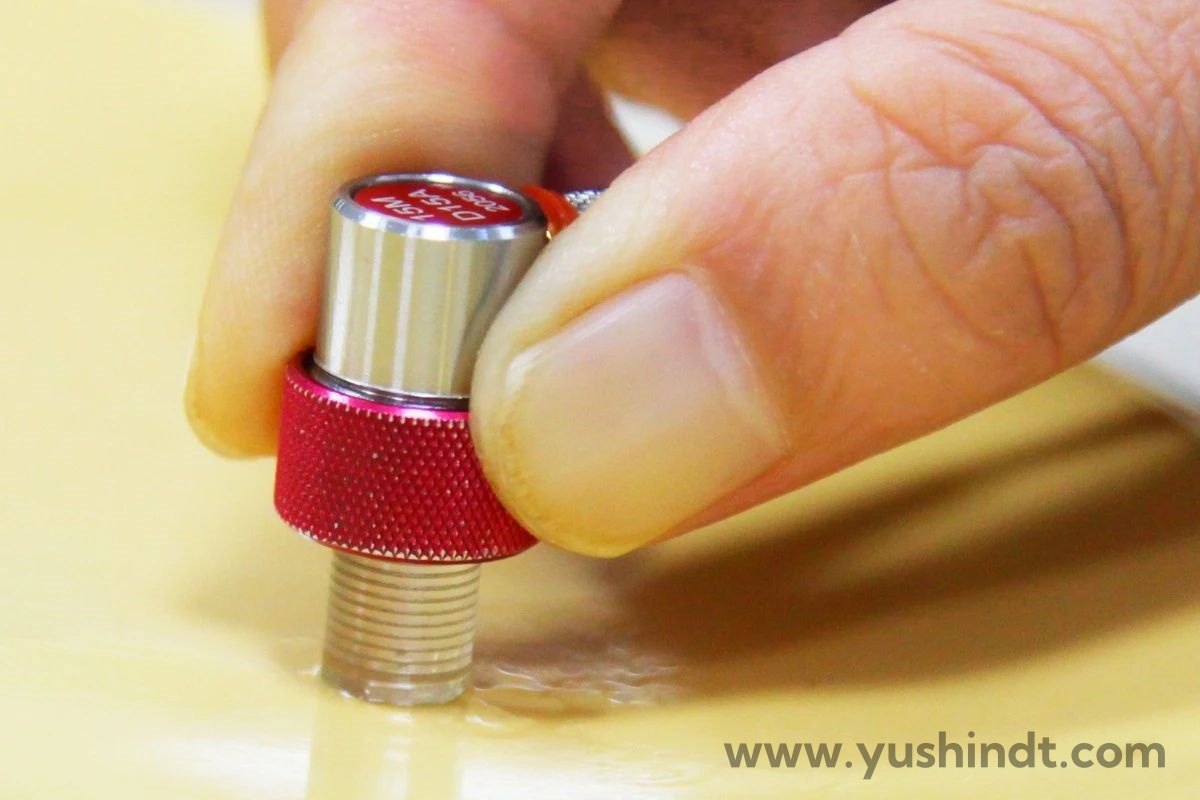
Measurement Result
We use YUSHI ultrasonic thickness gauge PM5 Gen2 for measurement, which can solve the problems encountered by our user.
The ultrasonic principle is not affected by the magnetic changes of the base metal, and can be measured as long as the workpiece surface is parallel to the bottom. We use a 15-20MHz delay line probe, which has small contact surface, can measure curved surfaces or edges. The optional double-layer measurement software can simultaneously measure the wall thickness of the steel container and the thickness of the glass-lined layer, The measurement results are displayed on the screen at the same time, and the values are accurate, stable and reliable.
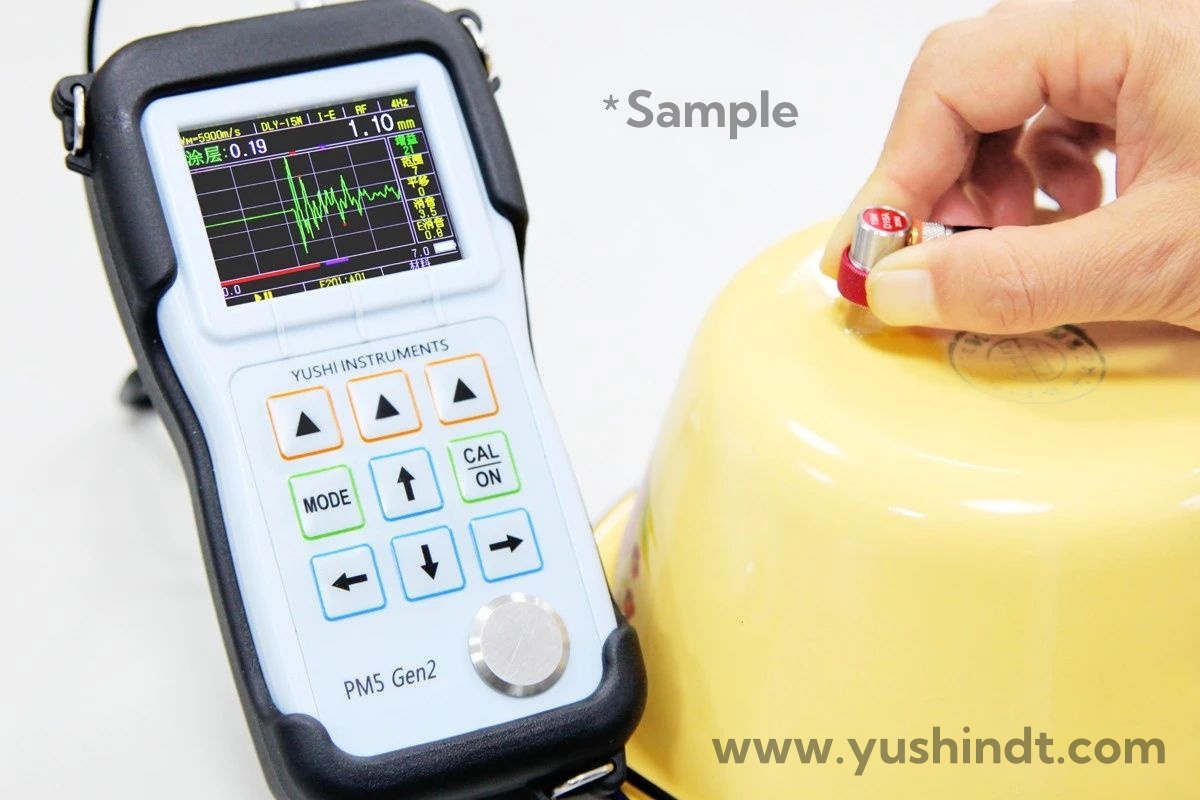
We all know that the glass lined layer is smooth, so it creates a beautiful appearance for our glass lined equipment.
Enameling metal surfaces can prevent metal from rusting. It is not easy to adhere to materials, and easy to clean. Glass lining is safe and non-toxic, and can be widely used in food utensils and washing utensils in daily life. It’s also suitable for chemical and pharmaceutical industries.
Ultrasonic thickness gauges can measure the thickness of enamel layer and metal materials simultaneously. Fast, simple and accurate is the main means and methods for controlling product quality. If you want to know about the method of using ultrasonic technology to measure the thickness of similar products, or if you have problems in the measurement application, please contact us to send a sample for testing, we will provide you with solution.

